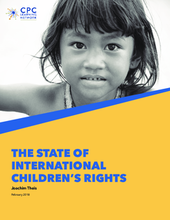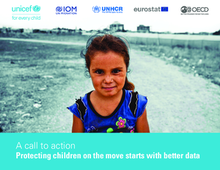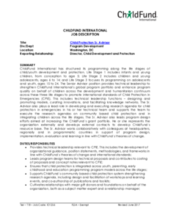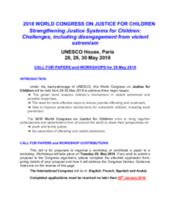Displaying 2171 - 2180 of 4431
This paper advocates for use of the life course perspective as a guiding research paradigm when investigating the educational experiences of adult care leavers.
This study sought to ascertain whether neglected children’s responses to leading questions distinguish them from those of their non-neglected counterparts.
This paper from the Human Resource Management Review provides a typology that can be applied to the transnational family as a theoretical lens through which diverse forms of transnational families can be understood.
The purpose of this paper is to provide an overview of the state of international children’s rights, to inform the discussions of a small group of specialists in August 2017, and to make a contribution to ongoing global discussions about child protection and children’s rights.
In this call to action, UNICEF, UNHCR, IOM, Eurostat and OECD show how crucial data are to understanding the patterns of global migration and developing policies to support vulnerable groups like children.
This fact sheet on violence against children from the World Health Organization (WHO) provides a brief overview of violence against children around the world.
The Senior Advisor position provides technical leadership to strengthen ChildFund International’s global program portfolio and enhance program quality on behalf of children across the development and humanitarian continuum across these three life stages to promote international standards of Child Protection in Emergencies (CPiE).
In this opinion piece for Australia's ABC News, Joseph Cheer - lecturer and researcher in tourism at Monash University - writes about recent changes in the "voluntourism" sector, including a shift in what is considered best practices in regard to orphanage volunteering.
This article (written in French) discusses the dangers of orphanage volunteering and the link between orphanages and trafficking, with comments from Frank Seidel.
INTRODUCTION:
Under the haut-patronage of UNESCO, this World Congress on Justice for Children will be held from 28-30 May 2018 to address three major issues:




